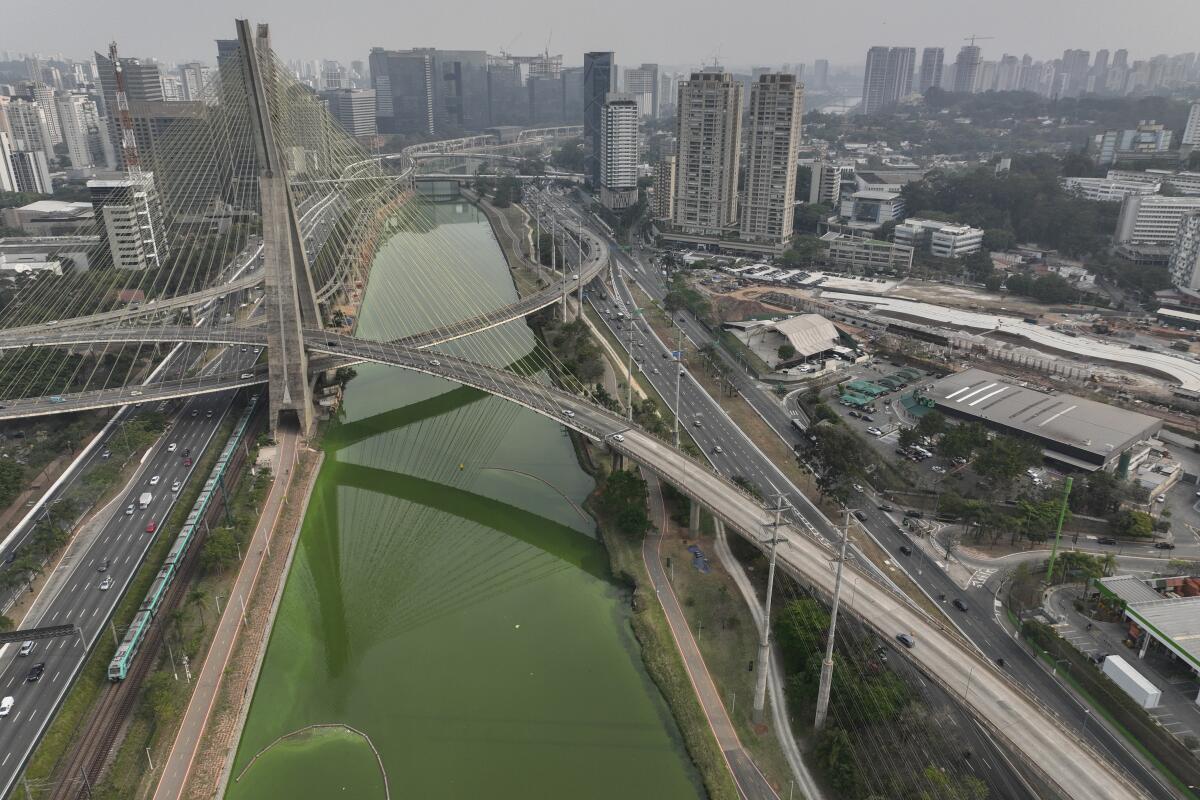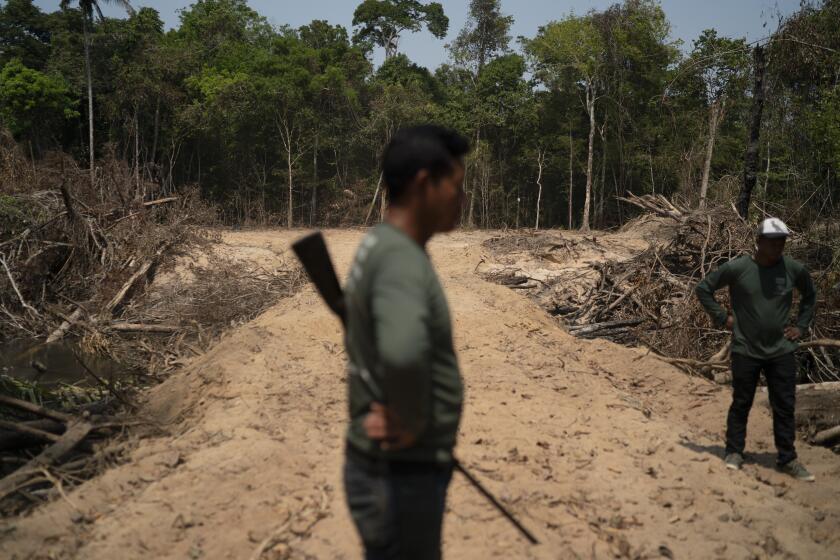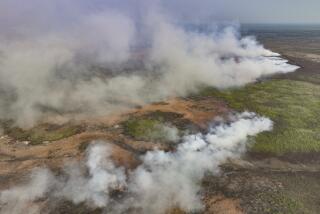Drought is making Sao Paulo’s river emerald green while smoke turns its skies gray

SAO PAULO — A major river in the Brazilian metropolis of Sao Paulo is suddenly emerald green and clear skies this week turned from blue to gray. In the late afternoon, the sun’s rays filtering through the smoky haze exhibit the color of deep orange.
This isn’t a fantasy world: Environmental threats in recent days have transformed the colors of the city’s landscape.
The state’s environmental authority attributes the Pinheiros River’s new green hue to an algal bloom, the result of severe drought that has significantly lowered water levels. The phenomenon was visible starting Monday and continued Tuesday. Those same days, the city suffered smoke-filled air, which the agency attributed to a hot, dry mass complicating the dispersal of pollutants originating in forested areas with ongoing wildfires.
Brazil is enduring its worst drought since nationwide measurements began over seven decades ago, with 59% of the country under stress — an area roughly half the size of the U.S. Major Amazon basin rivers are registering historic lows. Uncontrolled, human-made wildfires — in the Amazon rainforest and other biomes across the country — have ravaged protected areas and spread smoke over a vast expanse, worsening air quality nationwide.
Residents of South America’s most populous city are complaining about both the smoke throughout the city and a putrid smell near the river.
Illegal loggers have destroyed some 7,100 square miles of public forests over the last six years in the Brazilian Amazon.
“If it’s hot during the day and the temperature drops, the stench increases a lot after 10 p.m.,” Flavio Xavier Santana, a systems analyst, said in an interview with the Associated Press near the river.
For two consecutive days, smoke caused Sao Paulo, a metropolitan area of 21 million people, to breathe the second-most polluted air in the world, according to data gathered by IQAir, a Swiss air technology company. On Tuesday afternoon, the city’s air pollution was second only to that of Addis Ababa, Ethiopia.
Sao Paulo state’s environmental agency classified Tuesday’s air quality in the metropolitan region as very poor, and advised people to avoid strenuous outdoor exercise, stay hydrated, and keep doors and windows closed.
“I can’t even manage to practice physical activities on the street,” actress Ingrid Camboí told the AP. “I’m not even opening the balcony of my house, because the air is really bad, it really affects my health.”
Brazilian pop singer Marina Sena shared on social media a video from her window overlooking Sao Paulo, expressing alarm at the smoke blurring the view of buildings on the horizon.
“You live in a place where there’s a constant layer of smoke in the sky, a haze. A place where you can’t breathe. What the hell is happening?” she said. “Guys, I feel like we need to take 20 steps back.”
Sa Pessoa and Campos Mello write for the Associated Press.
More to Read
Sign up for Essential California
The most important California stories and recommendations in your inbox every morning.
You may occasionally receive promotional content from the Los Angeles Times.











